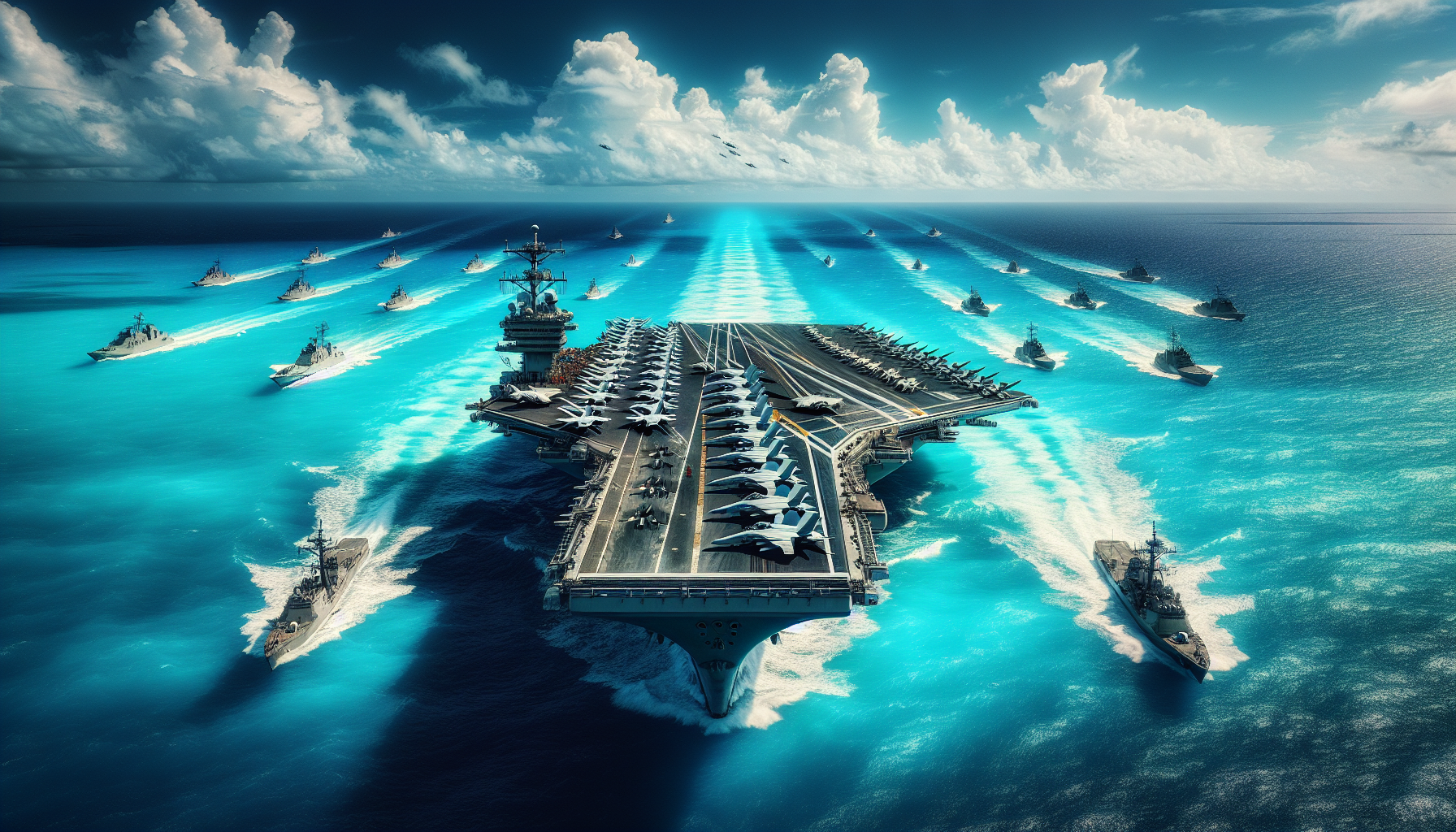The Pentagon is sending the USS Gerald R. Ford carrier strike group to the U.S. Southern Command region to bolster counter-narcotics operations, as President Donald Trump suggests the campaign could expand to land targets after a 10th strike on a suspected drug boat killed six people in the Caribbean.
On Friday, Defense Secretary Pete Hegseth ordered the Gerald R. Ford Carrier Strike Group to the U.S. Southern Command (SOUTHCOM) area of responsibility, which includes Central and South America and the Caribbean. Pentagon spokesman Sean Parnell said on X that the enhanced presence is intended to help detect, monitor, and disrupt illicit actors and activities in the Western Hemisphere. The USS Gerald R. Ford—the Navy’s newest and largest aircraft carrier—will deploy with its air wing, a cruiser and destroyers, and is expected to join eight other U.S. vessels already operating in the region, according to CBS News reporting and Pentagon statements.
The move comes amid an intensifying U.S. campaign against suspected drug traffickers at sea. Since early September, the administration has announced 10 strikes on vessels in the Caribbean and eastern Pacific, resulting in at least 43 deaths and, in one case last week, two survivors who were taken into U.S. custody before being repatriated to Colombia and Ecuador, according to reporting by the Associated Press, CBS News and Stars and Stripes. The latest strike, carried out overnight Thursday, targeted what U.S. officials said was a boat operated by Tren de Aragua, a Venezuela-based gang the U.S. designated a Foreign Terrorist Organization earlier this year. Hegseth said on social media that intelligence indicated the vessel was smuggling narcotics along a known trafficking route.
Venezuelan President Nicolás Maduro has condemned the maritime attacks, calling them “a military attack on civilians who were not at war and were not militarily threatening any country,” and accusing Washington of seeking regime change. U.S. officials have increased pressure on Caracas over alleged drug ties, including raising the U.S. reward for information leading to Maduro’s arrest to $50 million in August.
Trump this week suggested the maritime campaign could expand ashore, saying the United States is “totally prepared” to strike land targets and that he may brief Congress but does not believe a formal declaration of war is required. He also argued that traffickers have shifted routes because of the strikes at sea, adding, “Now, they’re coming in by land … that’s going to be next.” In separate remarks, the president claimed drugs are “killing 300,000 people per year,” a figure far higher than recent official U.S. overdose death totals; public health data show roughly 100,000 overdose deaths annually in recent years.
The growing military footprint has included U.S. bomber flights near Venezuela. The Associated Press reported that a pair of B-1B Lancers flew close to the Venezuelan coast on Thursday, following earlier missions in which B-52 bombers trained with Marine Corps F-35B fighters in the region.
The legality and oversight of the strikes have become a flashpoint in Washington. A Senate effort led by Democrats Adam Schiff and Tim Kaine to curb the operations under the War Powers Resolution failed this month, with Republicans Rand Paul and Lisa Murkowski joining most Democrats in support while the measure fell 48–51. Even some Republicans who opposed the resolution have asked for more transparency: Sen. Todd Young, for example, said he remains concerned about the strikes’ legal basis and urged additional oversight and briefings. The administration says targets are identified through credible intelligence and that operations occur in international waters.
Separately, Trump confirmed on October 15 that he had authorized the CIA to conduct covert operations in Venezuela, intensifying pressure on Maduro alongside the maritime strikes and broader sanctions policy. Maduro on Wednesday claimed Venezuela has “no fewer than 5,000” Russian-made Igla‑S man-portable air-defense missiles positioned nationwide, remarks widely reported by international outlets.
The Pentagon says the Ford’s deployment will augment ongoing interdiction and surveillance efforts across SOUTHCOM’s area of responsibility. A defense official told CBS News the carrier strike group was repositioning from the Mediterranean to support the mission. As the U.S. presence grows, lawmakers in both parties have pressed for fuller legal justifications and evidence behind the lethal maritime operations even as the administration warns that more strikes are likely if trafficking persists.

